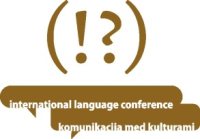Dear HLT Readers,
Welcome to the June issue of HLT. The summer at Pilgrims is nigh. We hope to welcome you at the Hilltop in Canterbury in the summer. We are aware that Erasmus+ is a new development and you may need some time before you find out how to tap into the funding. However, if not Pilgrims this summer then perhaps you can come in October 2014 (for more information see Pilgrims News) or in 2015. You will be always more than welcome.
We are delighted to announce that we have a new partner journal: Children’s Literature in English Language Education. The journal is available in an open-access electronic version, and publishes several issues annually (take a look at http://clelejournal.org/news/. We are glad of their interest and support.

The MATSDA/University of Liverpool 2014 Conference
SLA and Materials Development
June 28th-29th, 2014 at the University of Liverpool
Plenary Speakers: Rod Bolitho Rod Ellis Pauline Foster Alison Mackey Alan Maley Hitomi Masuhara Brian Tomlinson
Venue: University of Liverpool. Rooms to be announced.
Times:
Registration: 08.30 on June 28th and 29th
Conference: 09.00-17.30 on June 28th; 09.00-16.30 on June 29th
Fees (to include lunch and coffee)
Students: £90 (£50 for one day), MATSDA members: £120 (£70 for one day)
Non-members: £145 (£85 for one day)
MATSDA Membership: Contact Susie Pearson at
Booking, Accommodation Enquiries and Payment
Contact Filomena Saltao ; Tel - (44) 0151 7953129
Offers of Papers
To offer a paper for a forty five minute presentation contact:
Brian Tomlinson / brianjohntomlinson@gmail.com
SEE YOU IN LIVERPOOL IN JUNE
|
This issue is hosted by Yaser Khajavi who is the host editor. I would like to thank Yaser for all the hard work he has done harvesting and editing the articles. I am really impressed by the contributions made by Iranian teachers, and working with Yaser has been a real pleasure.
I hope you will enjoy this special issue,
Best
Hania Kryszewska
HLT Editor
hania.kryszewska@pilgrims.co.uk
Dear Readers,
Welcome to the June issue of Humanizing Language Teaching which is hosted by Iran. ELT in Iran has witnessed substantial changes in recent years. Currently, there are a large number of researchers and practitioners involved in language teaching areas and many articles are published annually in this field. The current issue covers a number of papers by Iranian teachers and researchers who are involved in teaching English language in language institutes and universities.
Before I introduce the articles, I would like to thank Hania Kryszewska for giving us the opportunity to host this issue and for her continuous support and encouragement during the whole process. I also appreciate those who submitted their manuscripts to HLT for possible publication; however, we had few slots in the issue and couldn’t include all the received papers and therefore had to let some of them down. Due to limitations, we had to be highly selective and tried to include contributions which were directly relevant and of use and/or interest to language teachers.
|

The 7th International Language Conference
‘The Importance of Learning Professional Foreign Languages for Communication between Cultures’
Venue: Faculty Economics and Business, University of Maribor, Maribor, Slovenia
Key dates:
| 16 May 2014 | Deadline for abstract submission |
| 2 June 2014 | Notification of accepted abstracts & Conference registration opens |
| 20 June 2014 | Deadline for registration of authors |
| 10 August 2014 | Deadline for full papers & payment of the conference fee for authors |
| 31 August 2014 | Deadline for registration & payment of the conference fee for listeners |
| 11 – 12 September 2014 | Conference dates |
Practitioners, researchers and postgraduate students interested in joining the discussion on current and emerging trends in foreign language teaching and learning are welcome to submit their proposals for papers (20-minute presentations) or workshops (25- or 45-minute workshops) or join the conference as a listener.
Relevant themes and topics may include but are not limited to:
- the role of languages for specific purposes in the 21st century,
- modern methods/approaches used in teaching LSP,
- LSP teaching and learning with ICT,
- the Bologna process in an LSP course,
- developing language skills in an LSP course,
- preparation of materials for LSP teaching,
- assessment and grading in an LSP course,
- domain-specific/LSP terminology,
- intercultural dimension of teaching and learning in an LSP course,
- multilingualism and LSP.
| Conference fees (VAT included) |
| €115 | for the first participant from one institution |
| €80 | for the second participant from the same institution |
| €50 | for the third and each further participant from the same institution |
Full details on the conference are published on the website
www.epf.uni-mb.si/ILC-Conference.
For more information, please contact:
Nataša Gajšt, MA
Faculty of Economics and Business
Razlagova 14, 2000 Maribor, Slovenia
Tel.: +386 2 22 90 225
Fax: +386 2 22 90 217
E-mail: int.conference@fl.uni-mb.si
|
This issue opens with the major article section which includes seven articles on different topics of language teaching and learning. In the first article EFL Learners’ Creativity and Critical Thinking: Are They Associated? Mansoor Fahim and Alireza Zaker report on a study examining the relationship between creativity and critical thinking among EFL learners. Hossein Ghebali and Hadi Farjami in another paper entitled Emotional Intelligence from a Language Teaching Perspective: Some Suggestions for Practice discuss the position of Emotional Intelligence in foreign language teaching from a practical point of view. Karim Shabani and Iman Bakhoda in Mediated Functioning and Processing Time as a Measure of L2 Learners’ ZPD performance examine students’ ZPDs enlargement and their processing time in reading comprehension tasks through C-DA. S. Abbas Mousavi in Not Cristal Clear Voices: Iranian TEFL Context and Non-Native Teachers highlights some context-specific challenges of Iranian high school teachers, focusing on teaching methodology and teachers' motivation for and understanding of 'change'. The next article Application of Self-regulation in Reading Comprehension by Mahshad Tasnimi and Parviz Maftoon deals with the philosophical foundation, models, and strategies of self-regulation, along with the contribution of self-regulation to instruction, especially teaching reading. Amin Pouresmaiel and Javad Gholami in their paper Which one Comes First in Your Classes? Form or Meaning strive to encourage language teachers to focus on form in their classes. Finally, Zahra Alimorad in her article Contrastive Phonological Analysis of English and Persian: A Case Study of an Iranian EFL Learner probes into the pronunciation problems a Persian speaking learner of English might have and puts forward some practical suggestions covering those problematic areas. Finally, in the jokes section, we have added some jokes submitted by S. Setareh Mousavi for your entertainment.
The second part encompasses eight short articles on various topics relevant to classroom practice. Those interested in the use of technology would find two contributions interesting; How to Implement ICT in an EFL Context: From Theory to Practice by Monir Ganjalikhani Hakemi and Authentic Video in the EFL Classroom: A Practical Review by Karim Kiani that both touch upon the use of technology in the language classroom. In addition, two articles deal with language testing: Dynamic Assessment as a Helping Hand for English Teachers: Computerized Assessment of transition Words or Phrases by Mahdi Nasiri et al., and How the Knowledge Base in Language Assessment is Measured: A Reverse Engineering Approach by Kioumars Razavipour and Tahereh Firoozi. On the English language as an international language, Mohammad Tamimy problematizes English language and western-born pedagogical strategies in his paper Problematizing Latent Colonialism. He accentuates the importance of attention to local values and practices. Some techniques on how to teach collocations are presented by Roohollah Shojaee and Mohammad Bavali in Collocations: A Linguistic view and Didactic Facet. In the next paper, Reza Abbasian suggests some activities to prevent loss of proficiency in English language teachers in his article Activities to Prevent Loss of Proficiency in Non-native TEFL Teachers. Finally, Naser Rashidi and Yaser Khajavi in The Post Method Era: Opportunities and Challenges strive to shed light on the postmethod era and pore over challenges and opportunities facing this trend.
|

Announcing ETp Live!
A one-day conference packed full of practical ideas
to improve your teaching practice
Taking place on Saturday 21 June at the Holiday Inn, Brighton, ETp Live! will bring the practical approach of English Teaching professional magazine to a one-day event.
This lively conference will be packed full of great ideas to improve your teaching practice. Book your ticket now!
ETp Live! will be hosted by Editor Helena Gomm and will bring the ethos of English Teachingprofessional magazine to life, focusing on the practical aspects of English language teaching.
Throughout the day you can attend seminars and workshops, all with the aim of developing your teaching practice.
If you only attend one conference this summer, make sure it's ETp Live!
Confirmed speakers include:
Jeremy Harmer
Philip Kerr
Dennis Davy
Mark Almond
Antonia Clare
Chia Suan Chong
Mike Hogan
Seminars announced so far include:
- Creating the right impression - the politeness and pragmatics of ELF
- The brave new world of adaptive learning
- The practical uses of drama, literature and pop culture in the classroom
- Love and the art of language learning.
To book and reserve your place just click here
|
Under the lesson outline, you will find three articles. Creative Innovative Conversations: Why and How? by Mehri Golfeshan that introduces an interesting technique to language teachers for enhancing communicative skills of students. Teaching Grammar by Using Songs in EFL Context by Mehdi Shahvali, in a recipe fashion, brings in some techniques on how to use songs in language classroom effectively. A Snapshot of Teaching English by Sara Salehi Karoonian also gives some practical insights that might be of interest to classroom teachers. In the review part, Evaluation of QUICK Software: the Pros and Cons, Zahra Fakher reviews a software program to be used by language teachers.
In the student’s voices section, S. Behrouz Behzadi reports on his Quest of Learning English that can serve as a nice model for language learners. In the poems section (Poems from Iran), you will find some poems by Movlana and Saadi - two internationally renowned poets from Iran- have been incorporated. The rationale for including these poems is that in order to humanize language teaching, many concepts which have humanistic values but are sadly neglected these days- can be taught to students through poems of these great poets. Of course, there are many other Iranian poets whose works have been translated into English such as Hafez, and Khayyam, to name just a few. These poems can be a great source of humanistic ideas for language teachers globally.
I hope that you will enjoy reading this issue.
With kindest regards,
Yaser Khajavi
Shiraz University, Shiraz, Iran
E-mail: yaserkhajavi@gmail.com




|